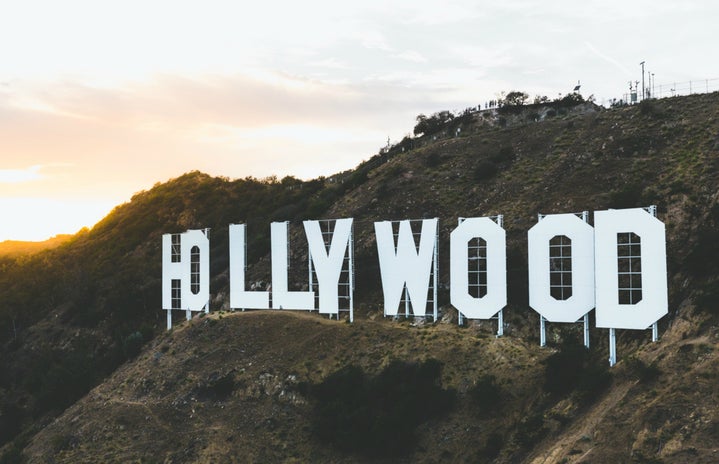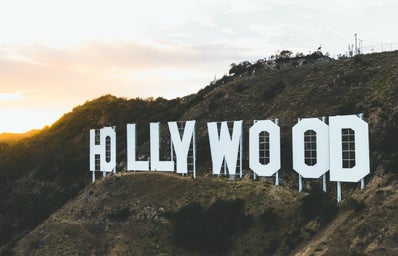Trigger Warning: This article contains brief descriptions of sexual assault.
In July of 2019, actress Natalie Morales tweeted: “I’d be very happy to never see anyone get raped in any movie or tv show ever again. It’s been done. It’s been done terribly, correctly, to every race, to every kind of woman, for no reason & for a good reason, but mostly as lazy writing. I’m good forever, man. literally forever.”
I think about that tweet a lot.
On the surface, it seems like a simple request. Rainn.org reports that one out of every six American women will be the victim of attempted or completed rape in her lifetime. With so many people living with the trauma of sexual assault, it seems like this is a conversation worth having. Is portraying this kind of violence helping or hurting the survivors? Do we, as audience members, actually gain anything besides the gratification of violence toward women? Either way, it would be nice to know that a survivor can sit down and watch a film without a massive trigger.
However, the rape scene is pervasive and universal. We see it in dramas and comedies alike. Though sometimes used for educational purposes, more often than not the rape scene functions as a plot point and nothing more.
Take director Spike Lee’s 1986 romantic-comedy, She’s Gotta Have It. The film centers around a young Black woman, Nola Darling, who dates three very different men at the same time. There’s so much to love about this film. It’s funny, it’s simple, it’s surprisingly feminist for a movie made in the 1980s. With a tiny budget and no color, Lee’s directorial debut proved that he was a talented voice in Hollywood.
I watched this film for the first time this year and it was easily one of my favorites. That was until I saw the last 15 minutes.
One of Nola’s boyfriends, Jamie, is tired of her inability to choose a man. Overcome with a desire to overpower her, Jamie rapes Nola. In this romantic comedy, this felt completely out of left field. Sure, at any given moment, I was annoyed with all of her boyfriends. Each of them wanted Nola to conform to a standard she didn’t want. But until this act, none of them seemed violent or threatening. Jamie’s act is uncharacteristically violent and serves only as a reminder that Black women should never be afforded true agency.
One of the things I loved about the film was how much control Nola had over her life. Often, even when women are afforded a lead role, their characters rarely have the power and intelligence to speak for themselves. For most of the movie, Nola felt like a breath of fresh air.
This scene violently robbed Nola of the autonomy she cultivated and protected for the entirety of the film. It’s also worth mentioning how exceptionally rare it is to find a Black woman as the lead in a rom-com. To subject her to such graphic and meaningless abuse felt completely wrong and cruel. With a two-minute scene, we were forced out of a lovely and light-hearted comedy into the real world of misogynoir and the mindset of a male director who thought that this was a necessary choice. This further begs the question, does this type of scene have any relevance in the movie? Would the film world be a better place if we removed it altogether?
In an interview with Hollywood Reporter, Lee even said he regrets the scene.
But in her tweet, Morales points out a problem that extends beyond the “inappropriate” rape scene. In a world where crime like this is so common, it is important to acknowledge the tension between survivors and their stories.
Most of us can agree that a rape scene has no place in a comedy. I would even go so far to say that it should be off-limits for sci-fi, horror, and fantasy. But what about when rape is essential to the story? Does this act of graphic violence need to happen on screen to illustrate a point?
For me, the short answer is no.
But there have been a few films that make me question the nuance of this answer.
For instance, the 2004 film Mysterious Skin, directed by Gregg Araki, is an incredibly formative work of art in the New Queer Cinema movement. The subgenre was first written about by critic B. Ruby Rich and defined loosely as media that disrupts mainstream interpretation of LBGTQ+ identities.
Mysterious Skin tells the story of two young men who are eventually brought together through shared childhood trauma. Even without the violent rape of Joseph Gordon-Levitt’s character Neil, the film is not for the faint of heart. Although it was one of the most moving and emotional experiences I’ve ever had while watching a movie, I’m not sure that I’ll ever be able to watch it again.
The scene, however violent, does seem to underscore an important point about the brutality faced by young, gay men who are pushed to the margins because of their trauma. Araki is careful never to conflate queer sexual identity with abuse and he is able to explore both themes with tenderness and care.
Araki, who identifies as a gay man, should have the right to tell stories about his sexual identity in a way that he sees fit. Unlike a rape scene in a comedy, Mysterious Skin is tonally incredibly dark. In essence, it is a story about sexual violence.
And these stories do have a place in Hollywood.
With the #MeToo movement still fresh in our minds, we cannot divorce the political environment where we create from the art itself. Sexual assault is rampant and largely normalized. Films have the power to tell the stories of survivors in an empowering and emotionally deep way. They can explain the bumpy road of healing and even serve as a sort of therapy for the creators.
This brings me back to Morales’ point: is there a place at all for rape scenes? Certainly, we are capable of telling nuanced and complete stories about sexual assault without exploiting scenes with graphic violence. Still, though, after seeing work like Araki’s, I believe that there is at least a small place for creators to tell this kind of story.
No matter where you land on this spectrum, we can all agree that Hollywood can approach this issue with more care. Mainstream films can avoid the horrific sexual assault trope as a crutch for lazy story-telling. Even the most politically correct directors and writers can ask themselves, “is this really necessary?” when dealing with a rape scene. Most importantly, we can keep listening and uplifting the voices of survivors.



